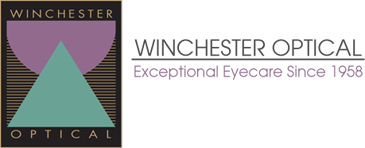
As children begin their educational journey, their ability to see clearly plays a vital role in their academic success. Vision problems often go unnoticed in young children, yet they can significantly impact learning, reading comprehension, and overall classroom performance. Early eye exams are crucial in detecting and addressing vision issues before they become obstacles to a child’s development.
The Link Between Vision and Learning
A significant portion of classroom learning is visual. From reading textbooks to focusing on the whiteboard, a child’s ability to process visual information affects their performance. Undiagnosed vision problems can lead to difficulties in:
• Reading and Writing: Children with uncorrected vision issues may struggle to follow words on a page, leading to slow reading speeds and poor comprehension.
• Classroom Engagement: Blurry vision can make it hard for students to see the board, take notes, or pay attention during lessons.
• Hand-Eye Coordination: Poor vision can affect a child’s ability to participate in activities such as drawing, writing, and sports.
• Behavior and Attention: Undiagnosed vision issues can sometimes mimic symptoms of ADHD, causing frustration, restlessness, or lack of focus.
Common Vision Problems in Children
Many parents assume that if their child does not complain about their vision, there are no issues. However, children may not realize they have a vision problem because they have no frame of reference for what normal vision should be. Some common vision conditions that can affect learning include:
• Nearsightedness (Myopia): Difficulty seeing distant objects, such as the board in a classroom.
• Farsightedness (Hyperopia): Trouble focusing on close-up tasks like reading or writing.
• Astigmatism: Blurred or distorted vision at any distance.
• Amblyopia (Lazy Eye): Reduced vision in one eye due to abnormal visual development.
When Should Children Have Their First Eye Exam?
The American Optometric Association (AOA) recommends that children have their first comprehensive eye exam at age three, and again before starting kindergarten. After that, children should have annual eye exams to ensure their vision is developing properly.
Benefits of Early Eye Exams
Identifying vision problems early allows for timely intervention, which can:
• Improve reading comprehension and learning abilities.
• Enhance hand-eye coordination for better performance in school activities.
• Prevent long-term vision issues from worsening.
• Reduce eye strain, headaches, and frustration associated with poor vision.
• Boost confidence in the classroom by ensuring children can fully participate.
Give Your Child the Best Start in School with Clear, Healthy Vision
Vision is a fundamental component of learning, and early eye exams are essential in detecting issues that could hinder a child’s academic success. Regular comprehensive eye exams ensure children have the clear vision they need to thrive in school and beyond.
At Winchester Optical, we are dedicated to helping children see clearly and reach their full potential. If your child hasn’t had a recent eye exam, now is the perfect time to schedule one. Visit our office in Winchester, Massachusetts, or call (781) 214-3990 to book an appointment and set them up for academic success!





